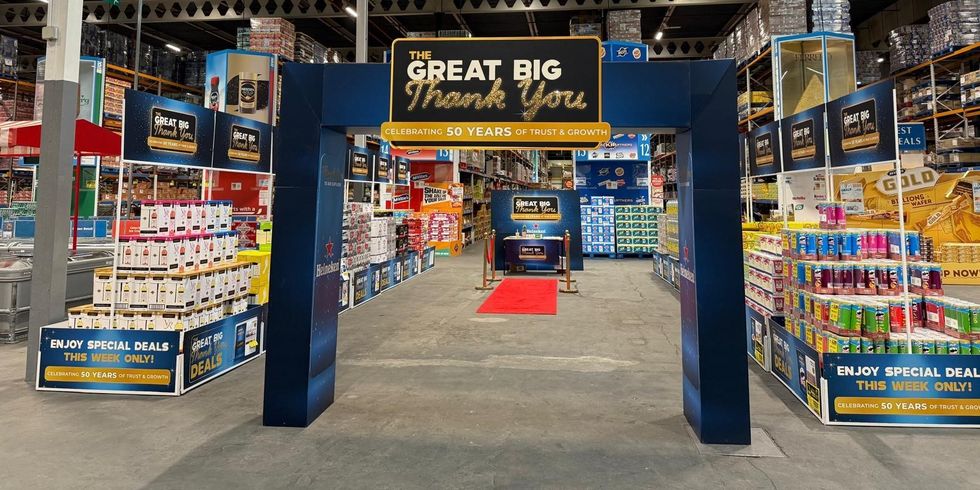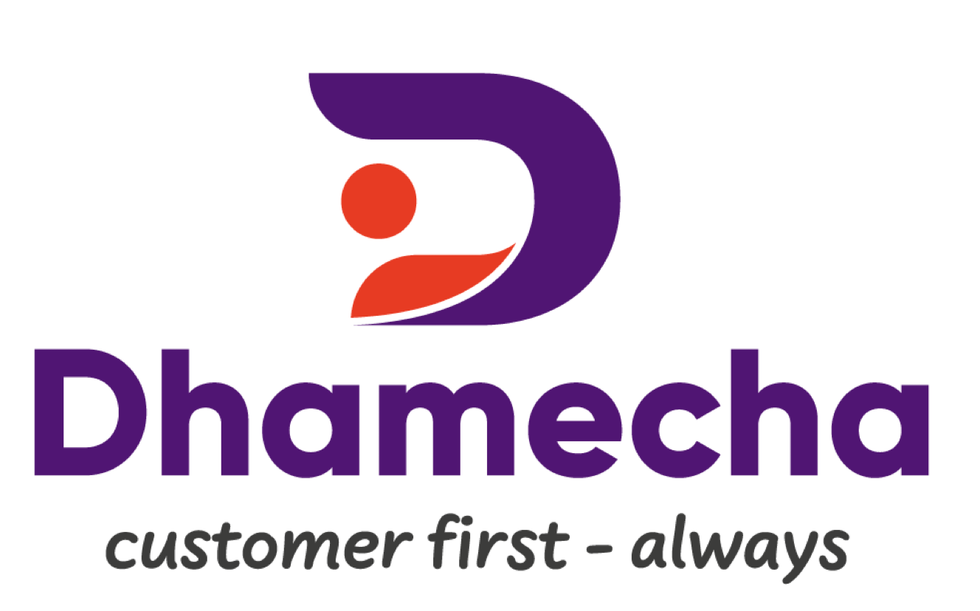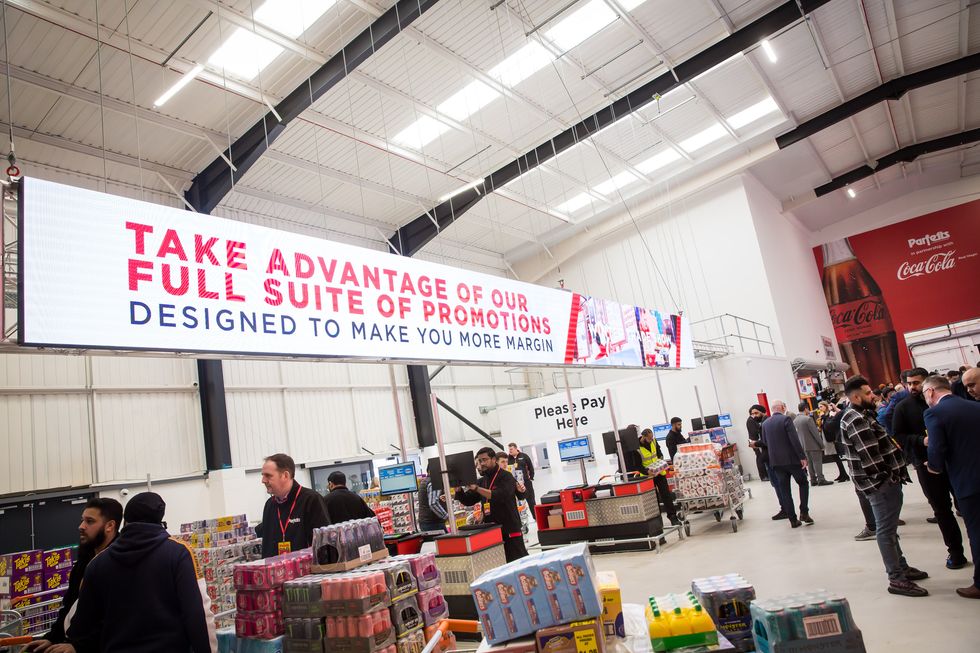Wholesalers might often not make headlines, but they make everything else happen. Long before a shopper grabs a snack or tops their pantry, there’s a complex, fast-moving world of supply chains, depot deals, and last-mile hustle.
In a sector that rarely gets the spotlight, UK wholesalers are rewriting the rules constantly, blending tradition with tech, local grit on a national scale, and old-school deals with next-gen demands.
According to UK’s leading wholesale body’s latest published research, “Going For Growth”, wholesale distributors act as the backbone of the value chain, generating £33.6 billion in turnover, with £17.5 billion from sales to retailers and rest from sales to foodservice providers.
The sector indirectly supports around 1.2 million jobs and £33 billion in value added via these customers.
Wholesalers spent £27bn with their suppliers in 2023-24, supporting 250,000 jobs and contributing £18.6bn gross value added to the UK economy.
Overall the sector supports 1.5 million value chain jobs in the UK, which is more than financial services.
In total £57bn gross value added to the UK economy through food and drink wholesale activity upstream and downstream, which is more than the GDP of Northern Ireland.
Delivery remains the most common route to retailers with 58 per cent of sales while 40 per cent of sales value was fulfilled through cash and carry and 1.3 per cent of sales is made through click and collect.
The UK wholesale structure is a mix of vertically integrated retail groups (supermarket-owned wholesalers), large independent firms, and cooperative buying alliances that give smaller players collective scale.
Definitely not a sector to be overlooked or underestimated! It might not be flashy, but the sector is far from humdrum.
Bigwigs, big plans
From century-old family dynasties to corporate powerhouses and hungry upstarts, the UK food and drink wholesale scene is a melting pot of muscle, legacy and fresh ambition- each playing to their strengths in a high-stakes supply game.
A heavyweight in the ring is Bestway Group, UK’s largest independent cash and carry operator via Bestway Wholesale.
Born in 1976 from a single convenience store in West London, Bestway has punched far above its weight to become one of the UK’s most successful family-owned conglomerates, now turning over more than £5 billion annually.
With 56 cash & carry depots across the UK, it supplies over 70,000 independent retailers and 40,000 catering and foodservice businesses.
So, what’s the secret sauce that keeps Bestway swinging strong?
Kenton Burchell, Group Trading Director at Bestway Wholesale, shares with Asian Trader, “At Bestway, we understand the challenges independent retailers face in competing with multiples and other competitors.
“To support them, we focus on providing competitive pricing, exclusive promotions, and access to a diverse range of products tailored to evolving consumer trends.
“By leveraging our scale, we offer strong trade promotions and price-marked packs (PMPs) that help indies build trust with their customers while maintaining healthy margins.
“Additionally, we provide insights into emerging consumer trends - such as the rise of health-conscious products and social media-driven demand so that independent retailers can stock what shoppers are looking for.”

Beyond pricing and product selection, Bestway empower indies with business support, digital solutions, and marketing initiatives.
“Furthermore, our best-one and Costcutter symbol groups and Xtra Local retail club provide branding, merchandising, and in-store support to help independents create a strong local presence,” adds Burchell.
Bestway also offers a delivery and collect model for the retailers as well, allowing them the flexibility to get the goods delivered to their stores, with the added benefit of being able to top up any required products at their local wholesale depot.
Now with over 300 SKUs, Bestway’s own label range Best-in offers generous margins of over 30 per cent in key retail categories, with smaller case sizes to aid retailers’ cash flow and stock holding levels more efficiently.
No wonder, Bestway is a go-to name in the convenience sector.
“We offer retailers access to an extensive range of impulse and alcohol SKUs available in all our wholesale depots nationally,” says Burchell.
“We provide relevant pack formats to support shoppers, ensuring PMPs are available to address the price sensitive market that our retailers trade in.
“We also work tirelessly to bring exciting NPD from our key suppliers first and early to retailers’ stores to help them keep their shelves fresh and be among the first to bring new news to their shoppers as we understand NPD is a key sales driver.”
While Bestway is the biggest independent wholesaler, the sector’s lion’s share still goes to corporate giant Booker, owing to its sprawling empire that includes the largest cash and carry business and a raft of well-known symbol groups.
With 190 cash and carry branches, eight distribution centres, and six support hubs, Booker’s reach is unparalleled. Its product line-up spans thousands of SKUs, from frozen food to tobacco, ensuring retailers can keep their shelves competitive.
Booker is seeing a constant growth, thanks to the wholesaler’s continous innovations with expanded chilled and food-to-go ranges, plus marketing initiatives such as loyalty programmes, exclusive trade promotions, and support for digital delivery services like Scoot.
A Booker spokesperson shares with Asian Trader, “While traditional cash and carries continue to play a vital role - offering immediate access to a vast product range at competitive prices - wholesalers like Booker have expanded next-day delivery services with temperature-controlled transport to meet fresh and chilled product demand.“
The sector’s growth is fueled by increased demand for convenience, diverse product offerings, and digital platforms such as Booker’s Scoot rapid delivery service that extend retailers’ reach beyond local areas.”
With over a century of heritage and a footprint stretching across England and Wales, A.F. Blakemore & Son Ltd is a true heavyweight in the UK’s family-owned wholesale scene.
Founded in 1917 as a modest counter-service grocery store, the business has grown into a billion-pound enterprise employing more than 7,500 people, proof that humble beginnings can scale up impressively with the right mix of vision and grit.
As one of the largest divisions of SPAR UK, A.F. Blakemore owns 280 SPAR stores and supplies over 1,000 across its trading area.
Now, A.F. Blakemore is making bold moves to reinforce its commitment to independents through a £4.5 million investment in price cuts, alongside a radical overhaul of its rebates scheme, signaling a renewed ambition from the UK’s largest Spar wholesaler to grow its independent base.
Formerly known as Nisa Retail, Co-op Wholesale UK, is also a national name, supplying to over 6,000 stores.
With the rebranding, Co-op reiterated its pledge to focus on the longer-term prospects for the convenience market.
With significant buying power, industry-leading quality own-brand products, and a supply chain built for convenience, Co-op Wholesale aims to deliver an unrivalled proposition that will power growth for both independent retailers and corporate partners alike.
Regional Titans
The wholesale sector is evolving rapidly. Retailers now have varied demands, forcing wholesalers to become more agile.
A perfect name here in this context is employee-owned wholesaler Parfetts.
John O’Neill, retailer sales controller at Parfetts, agrees, saying that what works nowadays is a hybrid approach that combines the traditional cash-and-carry model with delivered and collection depot services.

And Parfetts isn’t just talking the talk. It’s backing that vision with solid investment into depots, own-label lines, and tech innovation.
“Parfetts is investing in its depots, own-label products, and technology to ensure it can continue to support retailers' growth plans and their margins. We must focus on simplicity, service, and value at the heart of our proposition.”
Parfetts operates nine cash and carry depots, covering the East and West Midlands, Yorkshire, Derbyshire, the North East, North West and the South Coast, supplying their Go Local and Go Local Extra symbol group convenience stores, as well as foodservice businesses.
O’Neill says, “Independent retailers need partners who can offer both pricing support and operational flexibility, especially as multiples encroach on their territory.
“The most successful wholesalers are those offering comprehensive support packages, from delivery and EPOS to marketing and merchandising, without adding complexity or hidden costs. It’s this partnership-first model that’sfuellingParfetts’ sustained growth.”
Parfetts has a busy programme of ongoing promotions, seasonal campaigns, and retail support initiatives.
Earlier this month, it hosted its largest promotional event Parfest, running from July 6 to 12 across all eight of its UK depots.
Now in its fourth year, Parfest is a week-long celebration of the cash and carry sector, combining promotional deals with music, food, competitions, and a festival atmosphere that brings thousands of customers through the doors.
Behind the scenes, Parfetts is strengthening its offer with over 200 own-label lines delivering value and margin, a slick mobile app for smarter ordering, and a fresh fascia concept Shop & Go, designed for high-footfall commuter and forecourt sites.
“Importantly, all of this is delivered with no membership fees, no delivery charges, and tailored support from a team that’s fully invested in retailer success,” he adds.
While national players dominate headlines, the UK wholesale landscape thrives on the strength of regional champions, many of them family-owned, fiercely local, and deeply embedded in the communities they serve.

A leading regional player in the wholesale sector is JW Filshill, the Scottish family-run wholesale business, that is also celebrating its 150th anniversary this year.
The business might be more than a century old but its approach remains modern, calculated and innovative.
Craig Brown, chief sales and marketing officer at Filshill says, “Utilising sales data to inform product placement ensures high-demand items are prominently displayed.
“Providing clear signage and promotional materials aid in drawing attention to key products and offers.”
Filshill assists its retail partners by offering customised planograms, seasonal promotional materials, and access to its data analytics tools, ensuring stores are optimized for performance.
Not to overlook the retailers’ favourite Dhamecha Group. Very much a family-owned business, this wholesaler has a core of 12 depots around London and the Midlands, each averaging around 100,000 sq. ft. of well-lit floor space, open seven days a week and all stock over 12,000 products.
According to leading convenience retailers like Neil Godhania and Imtiyaz Mamode, the prices and offers at Dhamecha Group depots are unmatched, making sourcing from its cash and carry a fruitful exercise.
Despite being two to three hours away from the nearest depot, Mamode still visits Dhamecha once in a while only because of its generous margins.
And this sentiment of respect is mutual.
Pradip K Dhamecha, Dhamecha Group MD, applauds the indie retailers and their resilience.

Pradip shares with Asian Trader, “Despite a broadly flat market, there are reasons for cautious optimism. Retailers have demonstrated remarkable adaptability, embracing innovation to stay connected with their customers.
“From launching new products in partnership with suppliers to identifying creative ways to differentiate from the multiples, their resilience continues to shine through.
“The convenience sector, in particular, remains a vital route to market for suppliers, especially in the context of new product development, where many products are tested and refined in this space before national rollout.”
Up in Northern Ireland, Henderson Group stands tall as a major force. The company credits its growth to relentless focus on customer service, stronger stock availability, and savvy investment in wholesale pricing.
Meanwhile, Glasgow-based United Wholesale Scotland (UWS) is stepping out of its home turf and heading south. In a bold move, this Unitas member recently acquired Time Wholesale Services (TWS) in London, marking its first foray outside Scotland.
With the acquisition, UWS now operates four cash and carry depots and is poised to make a deeper dent in the UK’s independent retail scene. The deal is also expected to supercharge the growth of its Day-Today and Usave symbol groups in London.
Further south in Birmingham, Lioncroft Wholesale roars as the Midlands’ largest wholesaler. Known for competitive pricing and wide choice, it stocks over 16,000 products across 200+ household brands, cementing its position as a key regional player.
Another key name in the sector is London-based Wanis International Foods, the key wholesaler of ethnic and world foods, a rapidly rising avenue for sales in convenience stores.
Newbies with potential
The UK wholesale sector has been in a state of transition since the pandemic, with shifts in buying behaviour, delivery infrastructure, and product preferences.
While some larger wholesalers have leaned heavily into tech and nationwide logistics, the past few years have seen regional and specialist wholesalers like Sandea Wholesale come into their own, offering agility, tailored ranges, and real-time responsiveness to retail needs.
From its roots as a family-run business, Sandea Wholesale has become a trusted name among convenience stores across its regional footprint.
“The past few years taught us that being local and listening closely to retailers matters more than ever,” says a senior member of Sandea’s team. “We’re not trying to be the biggest; we’re focused on being the most dependable.”
And that dependability is paying off. With a strong repeat customer base and word-of-mouth growth, Sandea is expanding quietly but confidently, responding to increased demand for ethnic grocery lines, snacking staples, and household essentials that reflect the everyday needs of high-footfall stores.
Founded in 2020 amidst the Covid-19 pandemic by Sanjeet Manek, Sandea Wholesale has quickly made a name for itself as a resilient, growth-driven player in the UK wholesale space. It has earned accolades such as “Rising Star” recognition at the House of Commons in 2024.

The year 2025 has been metamorphic for Sandea Wholesale. The Harrow-based wholesaler is not only leaping from delivered to cash and carry model with new depot in Harrow, it also made a strategic acquisition of Swastik International (UK) Limited.
“We’re not trying to do flashy campaigns,” says Sandea’s marketing team. “We’re here to help shops get what they need, when they need it, at the right price and make it easy to sell.”
A fast-emerging name here is We Get Any Stock Ltd, a Bedfordshire-based wholesaler that has been awarded the prestigious King’s Award for Enterprise for International Trade 2025.
Founded in 2012, and based in Luton, Bedfordshire, We Get Any Stock Ltd has built a reputation for reliability in international exportation of high quality British products as well.
Another name to look out for is Star Pacific UK Ltd, that has been awarded the prestigious King’s Award for Enterprise – International Trade 2025, marking the third such occasion for the company.
And then is Westo Direct.
Westo Direct may be a new name on the scene, founded in 2023, but it's already making serious waves.
It all started with just 10 cases of Coca-Cola and a vision to meet Kent’s rising FMCG demand. Fast forward to today, and the company is shifting over 1.5 million cans of soft drinks every week, supplying a wide network of retailers, wholesalers, and trade partners nationwide.
The wholesaler recently launched an online ordering app that went live earlier this month.
What’s new and happening
Fresh strategies and bold innovations are shaking up wholesale as well as retail, transforming everyday supply chains into competitive edge tools.
Bestway’s Burchell vouches for effective merchandising, saying it is the key to helping retailers maximise their sales and profitability.
“We ensure our depots are easy to navigate, with clear category segmentation and logical product placement that mirrors consumer shopping habits.
“High-demand and impulse lines, such as soft drinks, confectionery, and snacks, are positioned in high-traffic areas to encourage upselling, while essential grocery and household items are placed for easy replenishment,” he said.
Beyond in-depot merchandising, Bestway also provides retailers with planograms, point-of-sale (POS) materials, and category insights to help them optimise their store layouts.
“Our best-one and Xtra Local members benefit from tailored merchandising support, ensuring their stores reflect the latest consumer trends and shopping behaviours,” Burchell adds.

Bestway isn’t just filling shelves; it’s helping retailers win online as well.
Its Socio Local pilot is giving independents a smarter way to handle social media, with a simple dashboard that lets them schedule and manage content across platforms—saving time and boosting visibility.
On the ground, Bestway stays sharp with seasonal offers and high stock levels of fast-moving lines. During the recent UK heat wave, it pushed out ‘Beat the Heat’ bundles featuring summer must-haves like fans,
When it comes to tapping the seasonal sales, Parfetts is not far behind.
"Shoppers are looking for chilled drinks, fresh meal options, BBQ favourites, and food-to-go during the warmer months,” informed O’Neil.
“There’s also a continued shift towards health-conscious choices, which is boosting interest in plant-based and protein-rich lines.
“Wholesalers supporting these trends with relevant promotions and range extensions are giving their retailers a competitive edge, especially when the offer aligns with local demographics and mission-based shopping.”
Additionally, consumers remain highly price-conscious, with value continuing to influence purchasing decisions.
Pradip from Dhamecha Group explains, “During the pandemic, there was a notable increase in basket sizes within the independent retail channel, as shoppers consolidated trips and relied more heavily on local stores.
“While this trend has since shifted back toward more frequent top-up shopping, the convenience channel continues to play a crucial role in meeting day-to-day needs.
At the same time, rapidly evolving social media trends – such as the recent surge in demand for "Dubai Chocolate" – highlight the importance of staying agile and responsive.
“Retailers who are able to quickly spot and stock trending products have a valuable opportunity to attract footfall and drive incremental sales.
“Maintaining a close eye on these developments can help retailers stay ahead of the curve and delight consumers with timely, in-demand offerings,” says Pradip.
Apart from soft drinks, energy drinks, confectionery and snacks, Sandea Wholesale advises retailers to remain bullish on “ethnic grocery staples, tailored to local communities, and household essentials”.
Empowering indies
Wholesalers and symbol groups continue to play a crucial local role, serving not only thousands of convenience stores but also the communities that the big chains don’t reach.
Bestway completely understands the challenges independent retailers face in competing with multiples and other competitors.
Burchell tells Asian Trader, “To support them, we focus on providing competitive pricing, exclusive promotions, and access to a diverse range of products tailored to evolving consumer trends.
“By leveraging our scale, we offer strong trade promotions and price-marked packs (PMPs) that help indies build trust with their customers while maintaining healthy margins.
Beyond pricing and product selection, Bestway also empowers indies with business support, digital solutions, and marketing initiatives.
On the other hand, Booker’s strength lies in its robust digital infrastructure, which provides retailers with real-time data insights and ordering flexibility, thus enabling them to quickly adjust to shifting consumer demands.
Through tools like Booker’s Scoot platform, retailers are gaining enhanced visibility into buying patterns and can tailor product ranges effectively.
Combined with Booker’s extensive chilled and fresh product portfolio and reliable next-day delivery, these capabilities are helping retailers stay ahead of trends and meet customer expectations efficiently.
Booker’s tailored retail development teams offer bespoke advice and marketing support, enabling stores to differentiate through exclusive own-brand ranges and loyalty programmes.
The Booker spokesperson tells Asian Trader, “Booker prides itself on maintaining strong, collaborative relationships with its retailers, offering hands-on merchandising assistance through dedicated Retail Development Managers who visit stores regularly.
“These experts provide tailored advice on product placement, promotional strategies, and stock management to suit each store’s unique customer base. Booker also supplies branded POS materials and digital marketing assets to ensure campaigns are consistent and effective, helping retailers increase basket sizes and drive loyalty.”
When it comes to empowering independent convenience stores, Parfetts feels that the key is to go beyond supply and act as a true partner.
“Independent retailers benefit most when wholesalers provide transparent pricing, frequent promotions, store development advice and tools that reduce workload, says O’Neill.
“Symbol models that don’t charge fees or tie retailers into restrictive terms are particularly attractive.
“Providing own-label ranges with high margins, coupled with support in areas such as merchandising, EPOS, and compliance, enables independents to maintain strong local identities while staying commercially competitive.
“These principles are driving Parfetts’ expansion nationally,” he adds.
Offering the best prices and flexibility is the key at Dhamecha Group.
Pradip tells Asian Trader, “Where non-price-marked packs are used, it’s more important than ever that any savings or discounts are passed directly to the consumer to maintain transparency and value perception,.
“We’re also seeing a growing shift among suppliers, who are now placing greater emphasis on the final retail price. By ensuring discounts and promotions flow through the entire supply chain, everyone benefits from increased sales to greater promotional activity and stronger customer loyalty.”
In today’s market, independents face fierce competition from multiples and discounters. But what they lack in scale, they make up for in flexibility, local loyalty, and fast decisions. Wholesalers like Sandea play a key role in keeping them sharp.
Sandea supports its retailers with fair pricing and fast-moving lines to keep margins strong, product guidance on what’s working in similar stores.
“We know most of our customers by name,” a depot manager at Sandea Wholesale shares. “That kind of relationship means we can flag new lines they might benefit from or tell them what to skip if something isn’t moving.”
This summer, Sandea is offering case discounts on key summer categories like soft drinks, crisps, and ice lollies, promoting ethnic grocery staples tied to festivals and family gatherings and providing printed promotional materials to help retailers flag deals in-store.
Wholesalers’ insight for retail trends
When it comes to knowing what’s flying off the shelves in convenience stores, few have a clearer view than wholesalers and many are now sharing those insights right here to help retailers stay ahead of the curve.
Core essentials such as chilled and fresh foods, soft drinks, confectionery, and snacking items continue to be strong performers, as they cater to impulse purchases and immediate consumption.
Burchell tells Asian Trader, “At Bestway, we recognise that certain product categories perform exceptionally well in the convenience sector due to consumer demand for quick, easy, and on-the-go solutions.
“With growing health-conscious trends, high-protein snacks, functional drinks, and food-to-go options are also gaining traction. Price-marked packs (PMPs) in key categories like crisps, chocolate, and soft drinks remain vital, as they reassure customers of value while driving footfall and sales.”
Additionally, convenience retailers benefit from stocking everyday essentials such as bread, milk, and household goods, which encourage repeat visits and build customer loyalty, added Burchell.
“Alcohol and tobaccoremain key sales drivers, particularly when paired with effective promotions and seasonal trends. With digital engagement increasing, products trending on social media - such as new confectionery flavours or viral food trends - present valuable opportunities for retailers to differentiate themselves,” Burchell from Bestway adds.
According to Booker spokesperson, essentials like fresh milk, bread, snacks, and chilled ready meals consistently perform well but it is the health-focused options, meal solutions, and seasonal items that drive growth.
“Convenience stores benefit most from flexible ranges that balance core staples with local favourites and impulse buys, tailored to their community’s preferences,” the Booker spokesperson says.
Booker supports retailers by offering a broad and flexible product portfolio that includes strong own-brand ranges and local specialties, ensuring stores can stock what their customers want.
The Booker spokesperson also names fresh, chilled, and food-to-go categories as increasingly critical.

From the eyes of Parfetts, fast-moving essentials and impulse lines continue to lead the convenience sector.
Apart from price-marked chilled food, soft drinks, snacks, fresh proteins, and household staples, O’Neill sees potential in own-label ranges that combine affordability with margin potential as well as food-to-go.
“The best-performing products are those that solve immediate shopper missions and lend themselves to repeat purchases.
“Chilled and fresh categories continue to grow, especially with the rise in demand for convenient, healthier food. This includes protein-rich ready meals, branded dairy, and plant-based options.
“Retailers should also pay close attention to snacking, vaping, and confectionery, where legislative compliance and product rotation are critical.
“Regularly updating stock to reflect seasonal needs and local preferences ensures the offer remains compelling while helping to maximise basket spend,” adds O’Neill.
Dhamecha Group sees a lot of potential in off licence category when it comes to boosting sales in convenience stores.
“The Off Licence category continues to deliver strong performance, with encouraging trends emerging across key product areas.
“Notably, demand for 10-pack beers has seen a marked increase, particularly in regions outside of London, reflecting evolving consumer preferences and value-driven purchasing behaviour,” Pradip says.
Energy drinks also remain a standout subcategory, maintaining impressive year-on-year growth, he says, adding that the vape category has experienced significant growth over the past 24 months.
“Despite increasing regulation around single-use products, the market continues to expand, driven by a growing variety of flavours and a surge in supplier competition.
“Notably, this category has demonstrated stronger growth within the convenience sector compared to the major multiples, highlighting its unique position in the market,” he adds.
Pradip believes in smart retail execution.
“Regardless of the merchandising format, displays should be intuitive, well-organised, and focused on the customer journey. Small, strategic relays that cater to shopper habits can make a big difference,” Pradip points out.
At Filshill, Edward Bentley, Category Manger for Impulse, is vouching on energy (full and low sugar) and fruit flavoured carbs in a take home-drink later format perform very well in convenience.
“Confectionery is still in good health but constant cost pressure on cocoa is seeing the start of a slide towards sugar confectionery,” he adds.
The demand for quick meal solutions supports the popularity of sandwiches, salads, and microwaveable options while during summer months, sales of beers, ciders, and ready-to-drink cocktails see an uptick, adds Bentley.
Iain Main, Category Range Planner for Filshill, adds, “Availability is key. Ensure bestselling lines have enough facing to stay in stock. Top 20 per cent of lines take 80 per cent of the category salesso vital that they are always on sale.”
Pressure Points and Possibilities
On the face of it, the wholesale sector appears to be a well-oiled, traditional machinery, and the sector is anything but static. It’s constantly evolving, adapting to technological advancements and sustainability imperatives.
However, things are not hunky dory as it seems. The past few months have been tricky, thanks to the increased costs in the form of higher wages and rise in NI contribution.
Pradip from Dhamecha Group, agrees, saying that consumers continue to grapple with the rising cost of living and potential implications of tariffs, while wholesale prices remain under pressure due to evolving legislation such as Extended Producer Responsibility (EPR) and upcoming duties on categories like vapes and alcohol.
“Wholesalers themselves have not been immune to these challenges. Increased costs, driven by higher national minimum wages and employer National Insurance contributions, have required some businesses to make difficult operational decisions.”
The sector is indeed under pressure and the calls for the government to rethink its approach to business rates reform and exempt food and drink wholesalers is gaining momentum.
The Federation of Wholesale Distributors (FWD) is the trade association for food and drink wholesalers in the UK, whose members cater to 400,000 retail and catering businesses, either by direct delivery or via cash and carry depots.
According to FWD CEO James Bielby, wholesalers run on wafer-thin margins of around 1 per cent, leaving them with no buffer to absorb yet another cost increase.
“While other businesses can pass on rising costs, wholesalers, who supply thousands of independent businesses and the public sector, cannot pass on costs without devastating consequences.
“Wholesalers are not asking for special treatment; they are asking for fairness. This policy was designed to target online giants, not the essential businesses feeding the nation,” says Bielby.
As we enter the second half of 2025, the UK’s wholesale landscape is at a crossroads.
Buffeted by inflation, labour pressures, and the looming wave of regulation, from EPR to wage hikes, the sector is also experiencing an encouraging phase of reinvention.
Wholesalers are becoming tech-savvy, sustainability-conscious, and increasingly focused on data partnerships, not just price lists.
Wholesalers aren’t just keeping the wheels of retail turning; they are rather tuning the engine, rewiring the dashboard, and plotting the next lap.
As convenience stores hustle to stay relevant, it’s their wholesale partners- old, new, regional, and national- who are quietly powering that progress. This sector might not chase the spotlight, but without it, the lights might go out.

![Wholesale way forward: Big players, regional titans, new stars and beyond [Exclusive]](https://www.asiantrader.biz/media-library/image.jpg?id=61416108&width=724&height=483&quality=60&coordinates=0%2C0%2C0%2C0)

